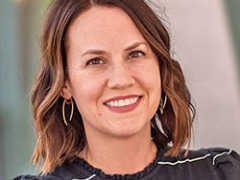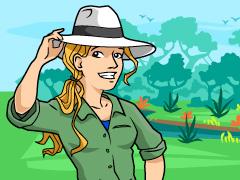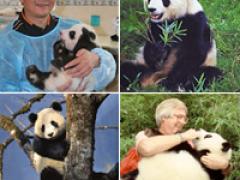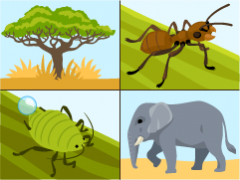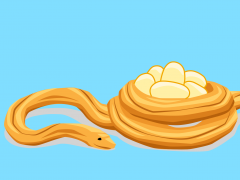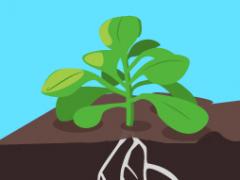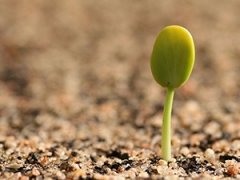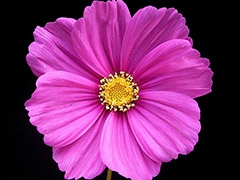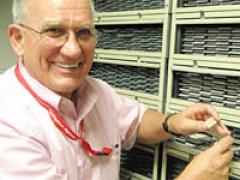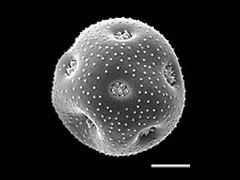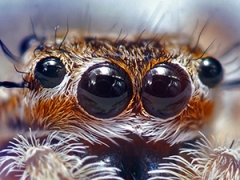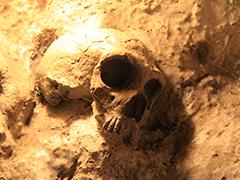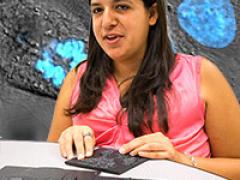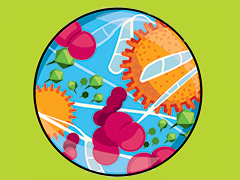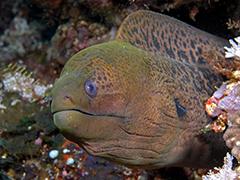There is more to our memory than you might think. In fact, we have three types of memory. Just how these memory systems work, and work together is the subject of this episode. We also learn that there are sometimes errors in our memory. Take a few minutes to learn how we remember things and even how to improve your memory. Dr. Biology and cognitive psychologist Whitney Hansen explore our amazing but flawed memory.
- Home
- Activities
-
Stories
- World of Biology
- Meet Our Biologists
- Listen and Watch
- PLOSable Biology
-
Embryo Tales
- All About Autism
- Xs and Ys: How Our Sex Is Decided
- When Blood Types Shouldn’t Mix: Rh and Pregnancy
- What Is the Menstrual Cycle?
- Understanding Intersex
- Twin Tales
- The Mysterious Case of the Missing Periods
- Summarizing Sex Traits
- Shedding Light on Endometriosis
- Periods: What Should You Expect?
- Menstruation Matters
- Investigating In Vitro Fertilization
- Introducing the IUD
- How Fast Do Embryos Grow?
- Helpful Sex Hormones
- Getting to Know the Germ Layers
- Gender versus Biological Sex: What’s the Difference?
- Gender Identities and Expression
- Focusing on Female Infertility
- Fetal Alcohol Syndrome and Pregnancy
- Ectopic Pregnancy: An Unexpected Path
- Creating Chimeras
- Confronting Human Chimerism
- Cells, Frozen in Time
- EvMed Edits
- Stories in Other Languages
- Images
- Links
- Contact
- About
Biology Stories
Explore the world of biology and meet some of our biologists. Here you can learn about the living world and find out what is so cool about biology that someone would do it for a living. Pick a story to read or listen to one of our podcast shows filled with guest scientists who share their experiences and passion for discovery.
When a tumor grows in a human body, you'd think that the body would fight it every way possible. But our bodies build vessels that deliver blood to tumors, helping them to grow. Scientists are trying to figure out why this happens so they can stop our bodies from feeding tumors.
For biologist Kate Ihle the rainforest holds the secret of her favorite insect. Wearing their their irredesent greens and blues, orchid bees are slowing sharing their story of life in the jungle.
Also in: Nederlands | Español
Have you ever wondered what it would be like to hold a baby Giant Panda in your lap? Listen in while Dr. Biology talks with two scientists who have gotten up close and personal with Pandas. Andrew Smith is a returning guest and WEI Fuwen is a visiting scientist from China that has been studying pandas in the wild. He has even caught the sounds of these elusive animals in the wild.
Elizabeth Pringle grew up in a family of biologists, but didn't think she would end up as a biologist until she fell in love with research.
Being a parent is hard work. Though a snake might not seem comforting to you, pythons are actually very dedicated moms that take good care of their kids.
Sometimes things don’t work as you expect them to, including periods. Learn more about what causes some girls to have irregular or painful periods.
You may know that plants need air, water, and sunlight to survive. But they also need a special molecule called phosphate. Learn more about phosphate, plants, and why genetic modification may be able to fix some of our plant problems.
Also in: Español
All over the world, plants are dependent on secret partners—bacteria and fungi—for their survival. But what happens to these relationships if new, exotic plants move into the area?
When humans build cities, we change the environment a lot for many of the animals living in the area. What can we do to help out the insects and other pollinators living in the city?
An interview with palynologist Vaughn Bryant from Texas A&M. Listen in as Dr. Biology learns how pollen is providing clues for more than scientists. These tiny bits of information turn out to be something more than sneeze triggers.
Is there any way to prevent pregnancy after sexual intercourse? Learn about Plan B, an emergency contraceptive.
If you are a moth, seeing a spider is probably one of your worst nightmares. Biologists have learned that some moths pretend to be spiders to confuse other spiders. Learn more about how these moths survive by fooling their predators.
Most people believed that Neanderthals, a species related to humans, were hunters that only ate meat. By taking a look at the Neanderthal’s fossilized poop, scientists discovered that there was more to their diet than just meat.
If you think of the instruments used to study and explore the world of biology it is clear that most are visual. So what if you cannot see? How would you understand the structure of – say a cell? Dr. Biology discusses a new tool for learning about biology with newly graduated student and biologist Ashleigh Gonzales.
You know you're sick, but what might you have? Is it bacteria, fungi, or viruses that are causing your illness? Learn about the differences between these pathogens and about how certain medicines can treat some, but not others.Also in: Español
According to an old German proverb the animal that is the subject of this show was made by the devil. Dr. Biology gets a lesson about this devilish study subject from biologist Raghavendra Gadagkar. They talk about what he has learned from years of observing these misunderstood animals. There is even a surprise ending that we call the 'Queen Switcharoo'.
Are we armed with all the information to fight the worst diseases, even the ones that we’ve just discovered? Scientists wanted to create a list to identify the worst diseases to gain more information and be ready to help treat these diseases.
There are different ecosystems all around the world. All of these ecosystems are supported by the animals, plants, and other things living there. Researchers are learning that even the very rare species are important for an ecosystem to survive.







